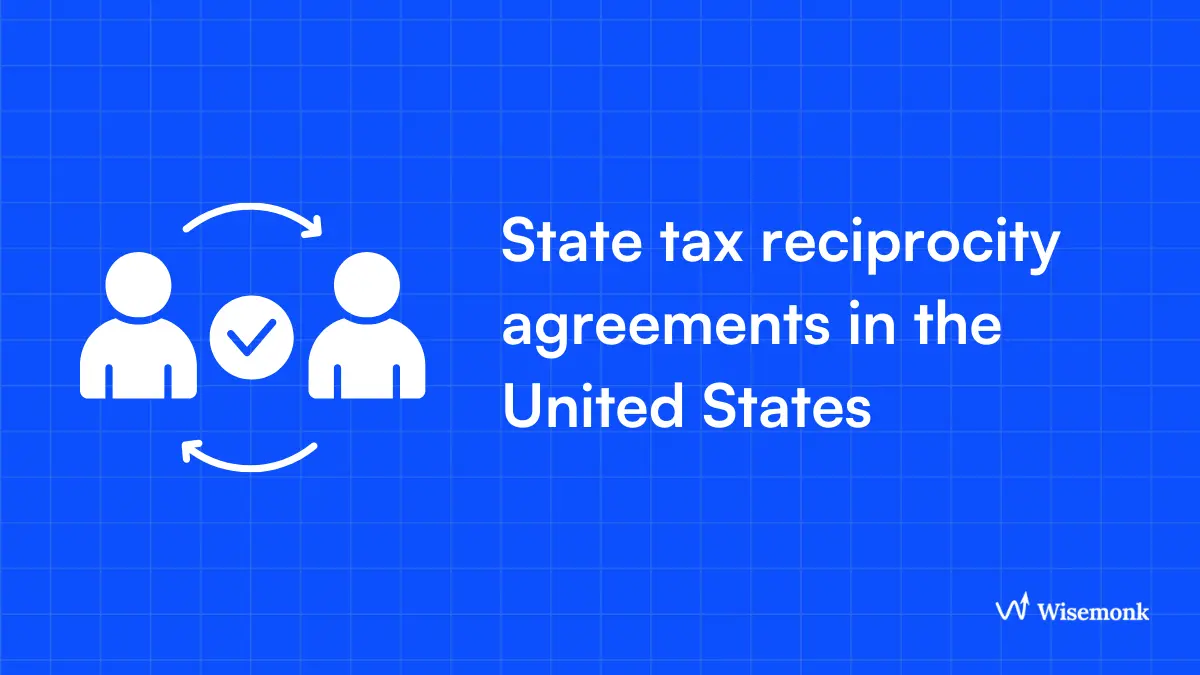- PILON enables immediate termination with compensation equivalent to notice period wages, governed by Industrial Disputes Act and state-specific regulations.
- Legal requirements vary significantly across Indian states, with notice periods ranging from 7-90 days depending on employee category and jurisdiction.
- Calculation includes basic salary and regular allowances but excludes performance bonuses, PF contributions, and gratuity payments.
- PILON differs from severance pay (15 days per year of service) and traditional notice periods (continued employment during notice).
- Best practices require explicit contract clauses, accurate wage definitions, timely payments, and comprehensive documentation for compliance.
- EOR services provide specialized expertise in PILON management, ensuring compliance across India's complex labor law landscape while reducing administrative burden.
Q1: What is Payment in Lieu of Notice (PILON) in India and When is it Used? [toc=PILON Definition]
Payment in Lieu of Notice (PILON) is a compensation mechanism that allows employers to terminate an employee's contract immediately while providing monetary compensation equivalent to what the employee would have earned during their contractual notice period. In our experience helping 100+ global companies navigate Indian employment laws through our EOR services, PILON serves as a crucial tool for managing workforce transitions efficiently while maintaining legal compliance.
Key Characteristics of PILON:
- Immediate termination without requiring the employee to work through the notice period
- Compensation covers the full salary and benefits for the notice duration
- Legally recognized under Indian labor laws, particularly Section 25F of the Industrial Disputes Act
Common Scenarios for PILON Implementation:
Protecting Business Interests: When employees have access to sensitive information, confidential data, or competitive intelligence, employers often prefer PILON to prevent potential misuse during the notice period.
Maintaining Workplace Stability: PILON helps avoid disruptions that might arise from terminated employees continuing to work alongside their colleagues.
Performance-Related Terminations: In cases where prior warnings have been issued for poor performance, PILON enables immediate separation while fulfilling legal obligations.
Organizational Restructuring: During downsizing, mergers, or business restructuring, PILON facilitates swift workforce adjustments without prolonged notice periods.
Employee Request: Sometimes employees request PILON to start new employment immediately or pursue other opportunities without delay.
PILON is particularly valuable in India's complex regulatory environment, where different laws apply based on employee categories, establishment types, and state-specific regulations. Companies looking to hire employees in India must understand these nuances to ensure proper workforce management.
Q2: What are the Legal Requirements and Compliance Framework for PILON in India? [toc=Legal Requirements]
The legal framework governing PILON in India is comprehensive and varies based on employee classification, establishment type, and applicable state laws. We've observed that understanding these nuances is critical for maintaining HR compliance in India across different jurisdictions.

Primary Legal Provisions:
Industrial Disputes Act, 1947: Section 25F mandates that employers provide one month's notice or payment in lieu thereof for workmen undergoing retrenchment. This applies to industrial establishments and covers employees earning up to specific wage limits.
State-Specific Shops and Establishments Acts: Each state has distinct regulations regarding notice periods and PILON provisions:
- Delhi: Requires one month's notice or payment in lieu for employees with three months of continuous service
- Maharashtra: Mandates 30 days' notice or payment in lieu for employees with one year of continuous service
- Tamil Nadu: Specifies 30 days' notice or payment in lieu for employees with six months of continuous service
- Karnataka: Similar provisions under the Karnataka Shops and Commercial Establishments Act
Employee Categories and Applicable Laws:
Compliance Requirements:
Documentation: Employment agreements in India should explicitly include PILON clauses to avoid disputes. While not mandatory, it represents best practice for clarity.
Government Permissions: For establishments with 100+ workers, retrenchment requires prior government approval, affecting PILON implementation.
Wage Calculations: Employers must refer to applicable wage definitions under relevant acts to determine PILON amounts accurately.
Record Maintenance: Proper documentation of termination reasons, notice provisions, and payment calculations ensures compliance during labor inspections.
In our understanding, the fragmented nature of Indian labor laws necessitates careful analysis of applicable regulations based on specific business circumstances and employee profiles. Companies considering EOR vs direct hiring in India often find that EOR services simplify these compliance complexities significantly.
Q3: How to Calculate Payment in Lieu of Notice: Methods and Examples [toc=Calculation Methods]
Calculating PILON accurately requires understanding the definition of "wages" under applicable Indian labor laws and considering all compensation components that would have been paid during the notice period. This calculation forms a critical component of payroll in India and affects the employee's final settlement.
Wage Components Under Indian Law:
The Payment of Wages Act, 1936 (POWA) and Industrial Disputes Act define wages differently, affecting PILON calculations:
Included in PILON Calculation:
- Basic salary and allowances
- House Rent Allowance (HRA)
- Medical allowance
- Leave Travel Allowance (LTA)
- Other contractual allowances
Excluded from PILON Calculation:
- Performance bonuses not forming part of regular remuneration
- Provident Fund contributions
- Gratuity payments
- Travel allowances or concessions
- Special expenses related to employment nature
Calculation Methods:
Method 1: Basic Calculation
PILON = (Monthly wages × Notice period in months)
Method 2: Daily Calculation
PILON = (Monthly wages ÷ 30) × Notice period in days
Method 3: Comprehensive Calculation
PILON = (Base salary + Regular allowances) × Notice period - Excluded components
Practical Examples:
Example 1: Software Engineer
- Monthly salary: ₹80,000
- Basic pay: ₹40,000
- HRA: ₹20,000
- Other allowances: ₹20,000
- Notice period: 3 months
- PILON = ₹80,000 × 3 = ₹2,40,000
Example 2: Manufacturing Worker
- Monthly wages: ₹25,000
- Basic pay: ₹15,000
- Dearness allowance: ₹5,000
- HRA: ₹5,000
- Notice period: 1 month
- PILON = ₹25,000 × 1 = ₹25,000
State-Specific Considerations:
Different states may have varying interpretations of wage calculations. For instance, some states include overtime payments in PILON calculations if regularly earned, while others exclude them.
Tax Implications:
PILON is subject to Tax Deducted at Source (TDS) as it constitutes salary income and directly impacts take-home pay in India. Employers must:
- Calculate TDS on the PILON amount
- Issue Form 16 for the financial year
- Ensure proper tax compliance for immediate payments
Understanding PILON calculations is distinct from severance pay in India, which follows different calculation methods and legal provisions. We recommend consulting the specific wage definitions under applicable state laws and employment contracts to ensure accurate PILON calculations that comply with local regulations.
Q4: What are the Key Differences Between PILON, Notice Periods, and Severance Pay? [toc=PILON vs Notice vs Severance]
Understanding the distinctions between PILON, notice periods, and severance pay is crucial for proper compliance and employee relations management. In our experience helping global companies navigate these complexities, we've observed that many organizations initially struggle to differentiate these three concepts, especially when managing payroll cycle in India.
Payment in Lieu of Notice (PILON) vs. Notice Periods:
PILON allows immediate termination with compensation equivalent to the notice period wages, while notice periods require the employee to continue working until the contractual or statutory period expires. Notice periods in India typically range from one to three months, with non-executive employees entitled to one month's notice under the Industrial Disputes Act, and executives often having 30-90 days as per their employment contracts.
PILON vs. Severance Pay:
Key Distinctions in Practice:
PILON covers wages and benefits the employee would have received during their notice period, whereas severance pay provides additional compensation beyond the notice period. Severance pay in India is calculated as 15 days' average pay for each completed year of service under the Industrial Disputes Act.
Tax Treatment Differences:
PILON is treated as regular salary income and subject to TDS, while severance pay has specific tax implications under Section 25F provisions. Both payments are taxable, but the calculation methods and timing differ significantly. Understanding these differences is essential when navigating overtime laws in India and other compensation-related regulations.
Legal Requirements:
While PILON can be implemented through contractual provisions or statutory rights, severance pay is mandatory for workmen with at least one year of continuous service under retrenchment scenarios. We recommend that employment contracts clearly specify all three components to avoid disputes during termination processes.
Q5: What are the Best Practices for Implementing PILON in Indian Employment? [toc=Implementation Best Practices]
Implementing PILON effectively requires careful attention to legal compliance, documentation, and employee communication. We've developed these best practices through our extensive experience managing terminations for 100+ global companies in India, particularly through our best employer of record EOR services in India.

Contractual Clarity and Documentation:
Include Explicit PILON Clauses: Employment contracts should specify circumstances under which PILON will be paid, calculation methods, and components included in the payment. While not statutorily required, explicit PILON clauses represent best practice for avoiding disputes.
Define Payment Components: Clearly specify whether PILON includes basic salary only or extends to allowances, bonuses, and other benefits. Our research indicates that ambiguous contract language leads to 60% more termination disputes.
Specify Immediate Termination: Contracts must clearly state that termination becomes effective immediately upon PILON payment, even if the payment is made at a later date.
Calculation and Timing Best Practices:
Use Accurate Wage Definitions: Apply the appropriate wage definition under applicable laws - Industrial Disputes Act for workmen or state-specific Shops & Establishments Acts for other employees.
Ensure Timely Payment: PILON should be paid before or at the time of issuing the termination notice for workmen, and by the next working day for other employees.
Pro-rata Calculations: When implementing partial PILON (e.g., two weeks of a one-month notice period), calculate on a daily wage basis for accuracy.
Communication and Process Management:
Clear Termination Communication: Termination notices should explicitly state that PILON is being provided and employment ends immediately. This prevents confusion about the employee's status during the payment period.
Documentation Standards: Maintain comprehensive records including termination reasons, PILON calculations, and payment confirmations for compliance during labor inspections. Proper documentation aligns with established HR policies in India.
Employee Benefits Consideration: Address continuation or cessation of benefits like health insurance, provident fund contributions, and other perquisites during the PILON period.
Risk Mitigation Strategies:
Legal Review Process: Establish internal protocols for legal review of high-value or sensitive PILON cases to ensure compliance with applicable labor laws.
State-Specific Compliance: Different states have varying notice period requirements and PILON provisions, requiring customized approaches based on employee location and applicable laws. Many companies find that employment outsourcing services in India provide the expertise needed to navigate these complexities effectively.
Q6: How Can Wisemonk's EOR Services Help You Navigate PILON and Employment Compliance in India? [toc=Wisemonk EOR Solutions]
As a specialized Employer of Record provider in India, Wisemonk offers comprehensive PILON and termination management services that eliminate compliance risks while ensuring smooth employee transitions. Our India-focused expertise provides significant advantages over generic global EOR solutions.
Comprehensive PILON Management:
Legal Compliance Assurance: Wisemonk ensures full compliance with Indian labor laws, including proper application of Industrial Disputes Act provisions, state-specific Shops & Establishments Acts, and current wage definitions for accurate PILON calculations. We assume all compliance risks associated with terminations, protecting client companies from potential legal disputes.
Accurate Calculation Services: Our expert team manages complex PILON calculations, considering basic salary, allowances, statutory deductions, and state-specific requirements. We handle pro-rata calculations, tax implications, and ensure timely payment processing within statutory timelines.
Documentation and Process Management: Wisemonk manages all termination documentation including PILON letters, full and final settlement statements, relieving letters, and experience certificates. Our technology platform provides real-time status updates throughout the settlement process.
Specialized Indian Market Expertise:
State-Specific Knowledge: Unlike global EOR providers, our India-only focus enables deep understanding of varying state regulations, from Delhi's one-month notice requirements to Maharashtra's specific wage calculation methods.
Rapid Processing: Our streamlined process completes PILON settlements within 7-10 days, significantly faster than traditional methods while maintaining full legal compliance. This speed advantage helps companies manage workforce transitions more effectively.
Cost-Effective Solutions: PILON management is included in our standard EOR pricing starting at $99 per employee per month, eliminating separate settlement processing costs that other providers often charge. For detailed pricing information, explore our cost of employer of record EOR in India guide.
End-to-End Support Services:
Termination Strategy Consultation: We provide guidance on whether to implement PILON versus working notice periods based on specific circumstances, employee roles, and business requirements.
Benefits Transition Management: Wisemonk facilitates seamless management of Provident Fund transfers, insurance conversions, and other benefit transitions during the termination process.
Employee Communication Support: Our team provides clear communication to departing employees about their PILON entitlements, settlement timelines, and rights under Indian labor laws, reducing potential conflicts.
Technology-Driven Efficiency: Our platform integrates with existing HR systems and automates document tracking, settlement calculations, and compliance monitoring, reducing administrative burden on client companies. This comprehensive approach extends to our hiring solutions in India, ensuring seamless workforce management from recruitment to termination.
Risk Mitigation and Legal Protection: By partnering with Wisemonk, companies benefit from our comprehensive understanding of Indian bureaucratic processes and cultural nuances, ensuring smooth and legally compliant PILON implementations. Our specialized focus on India enables us to navigate complex labor law requirements more effectively than global providers covering multiple countries.
Whether you're managing individual terminations or large-scale workforce transitions, Wisemonk's EOR services provide the expertise, technology, and local knowledge necessary to navigate PILON and employment compliance in India successfully.
Frequently asked questions
Is PILON a one off payment?
Yes, PILON is typically paid as a single lump sum payment upon termination. The entire amount covering the notice period wages is processed immediately, unlike regular salary payments spread over time. However, some companies may structure it across multiple payroll cycles for administrative convenience, particularly for large amounts requiring specific payroll processing protocols.
Is a 3 month notice period legal in India?
Yes, 3-month notice periods are legal in India for senior employees and executives through contractual agreements. While the Industrial Disputes Act mandates only 1 month for workmen, employment contracts can specify longer periods for managerial roles. However, the notice period must be reasonable and proportionate to the position's seniority and responsibilities.
Can a company hold salary during a notice period?
No, companies cannot withhold salary during the notice period if the employee continues working or receives PILON. Under the Payment of Wages Act, wages must be paid by the 7th of the following month. Salary withholding is only permissible for specific deductions like loans or damage recovery, subject to legal limits and HR compliance requirements.
Can I resign with immediate effect due to stress?
While stress-related immediate resignation is possible, employees remain contractually obligated to serve notice or compensate employers for the notice period. Medical emergencies or harassment situations may provide grounds for immediate resignation without penalty. We recommend documenting health issues and seeking legal counsel before implementing immediate resignation due to workplace stress.
Will I get my salary if I resign without notice?
Generally, yes, but employers may deduct notice period compensation from final settlements. Under Indian labor laws, earned wages cannot be forfeited entirely. However, the employer can recover notice period wages or require payment in lieu from the resigning employee. The actual impact depends on employment agreements and company policies.
Can I reject PILON?
Employees typically cannot reject PILON when offered by employers, as termination becomes effective upon notice. However, if an employee prefers working through the notice period, they can request this arrangement. Mutual agreement between both parties determines the final approach. PILON is generally an employer's prerogative rather than an employee's choice in termination scenarios.
What are the benefits of PILON?
PILON offers immediate financial security without work obligations, enables faster transition to new employment, and eliminates workplace conflicts during notice periods. For employers, it protects confidential information, reduces disruption, and provides clean separation. PILON also simplifies workforce management by eliminating the complexities of managing departing employees while maintaining legal compliance.
.png)


